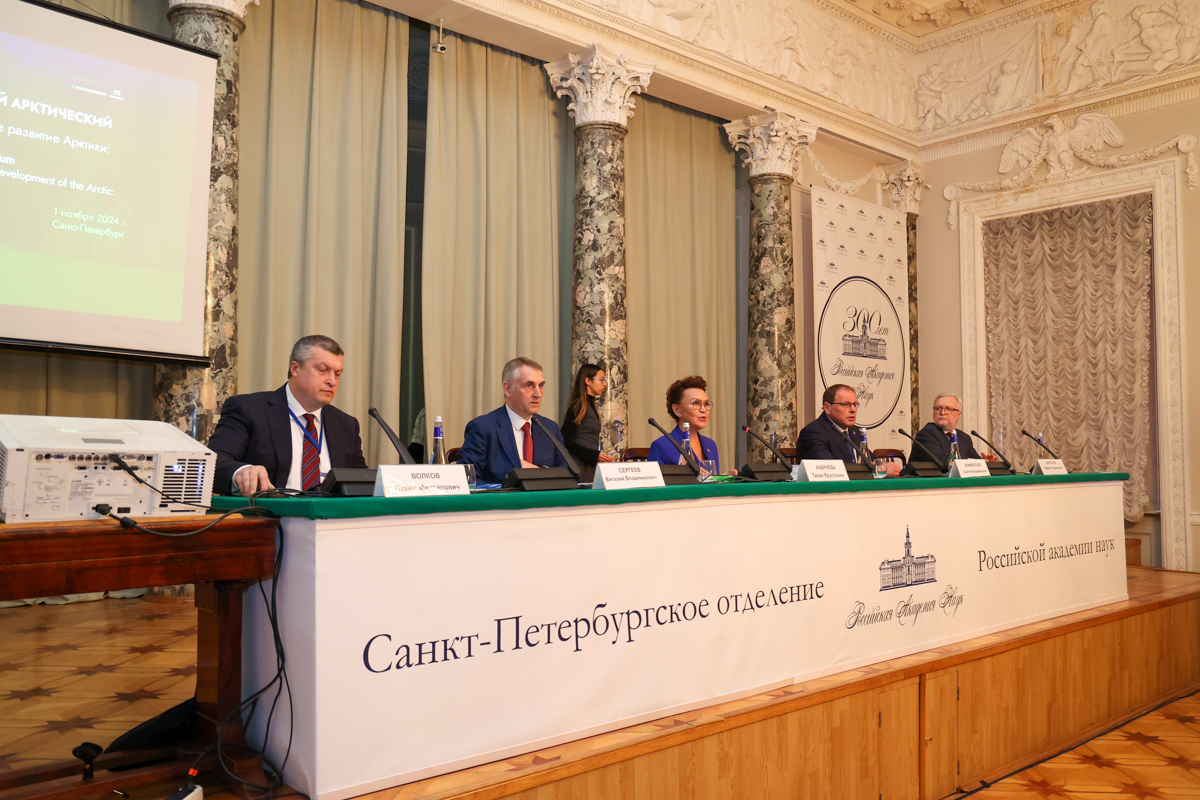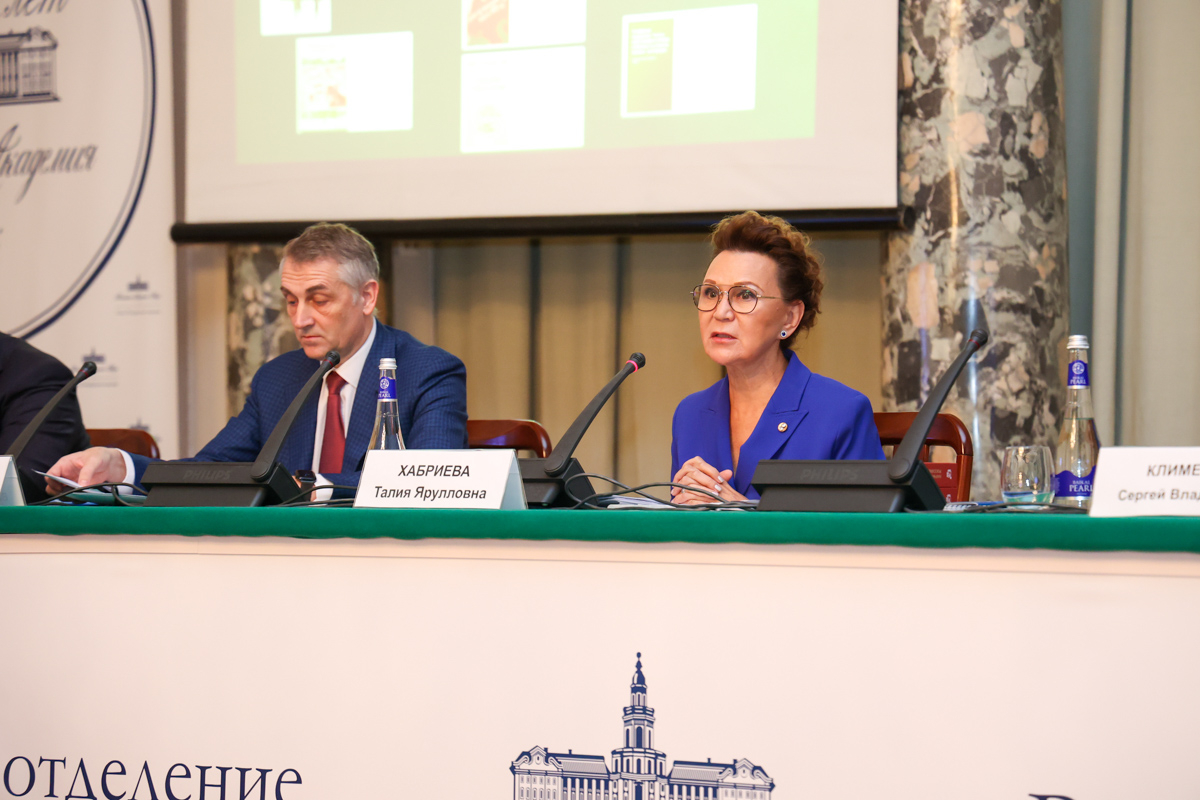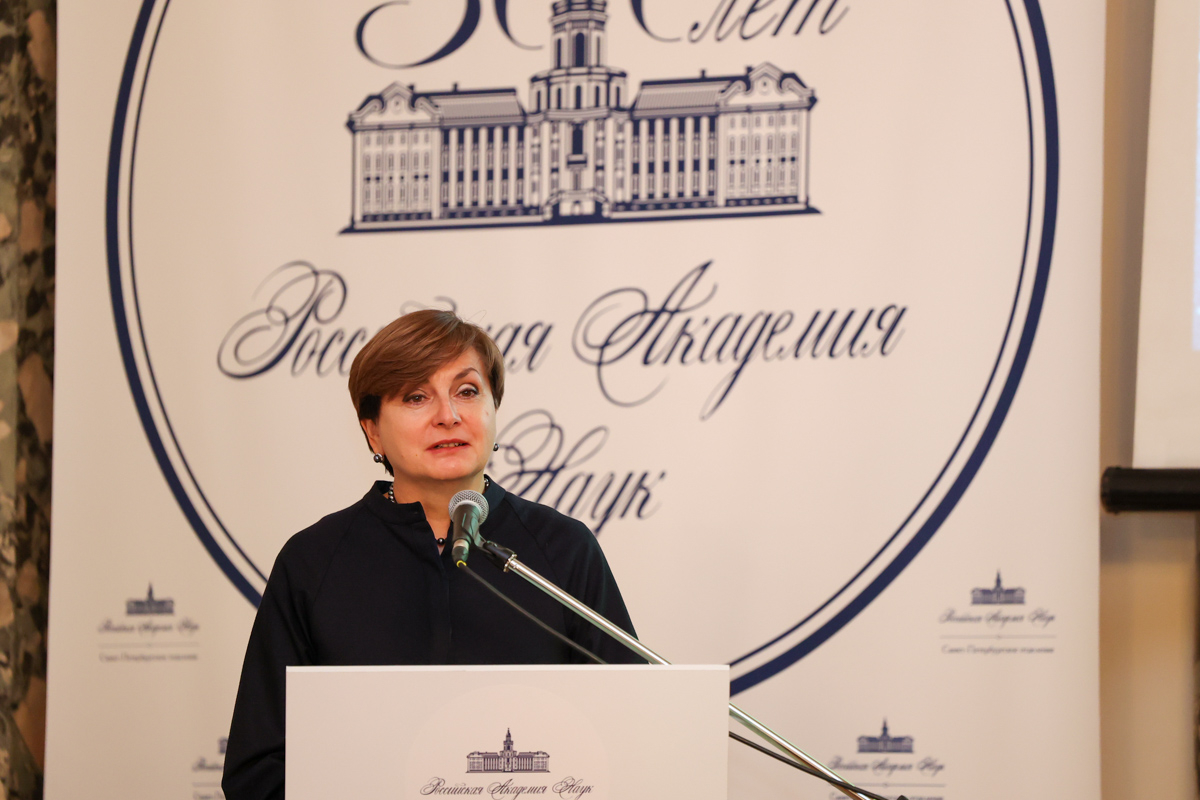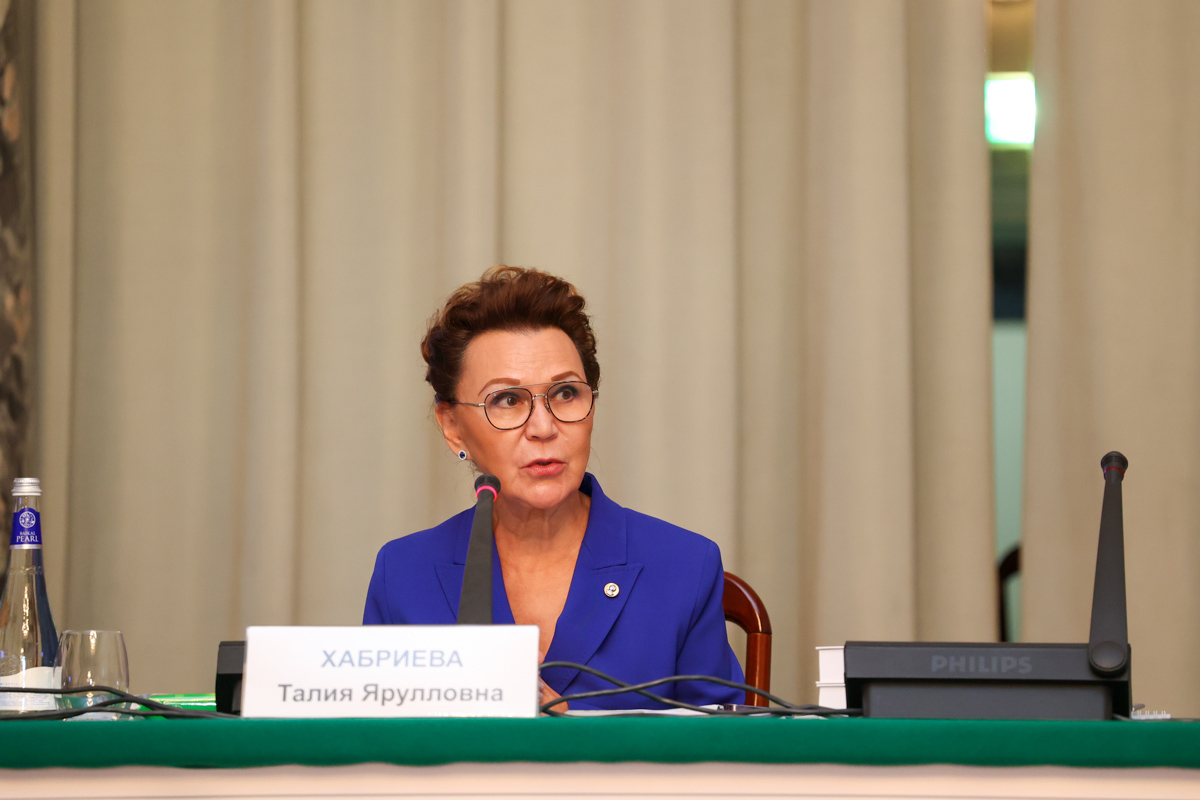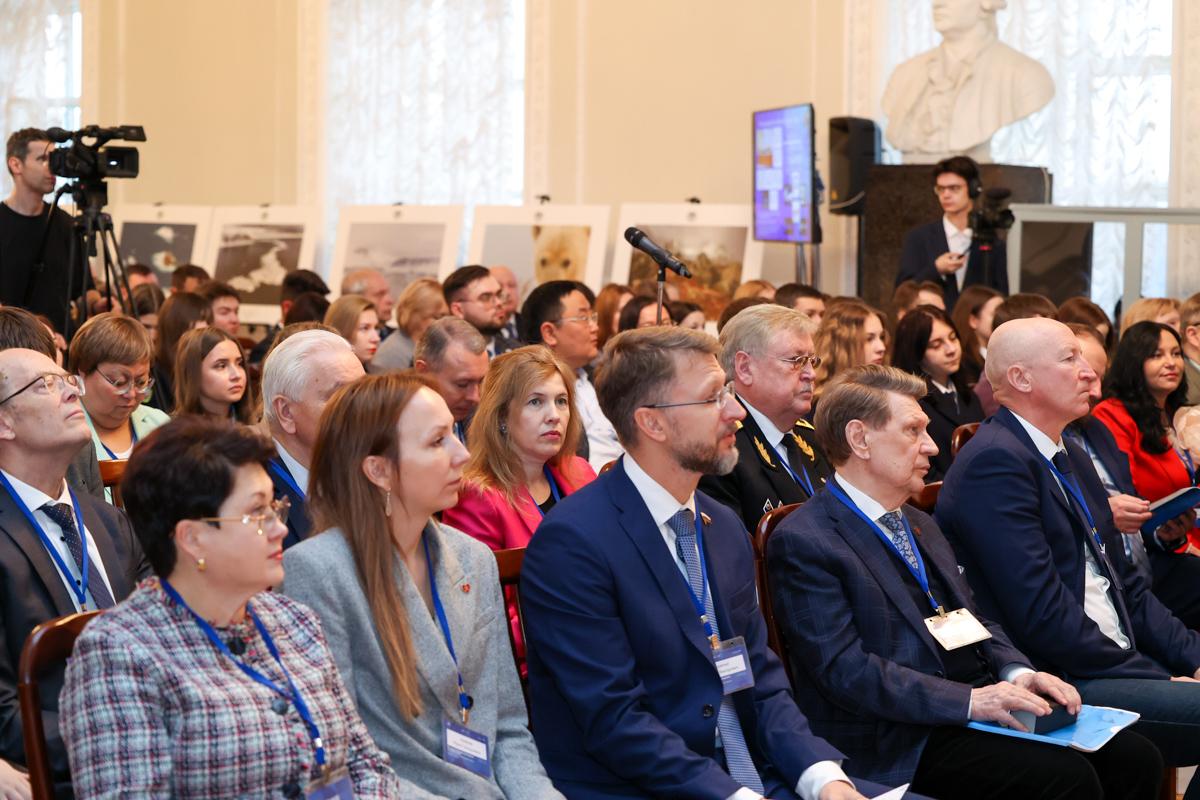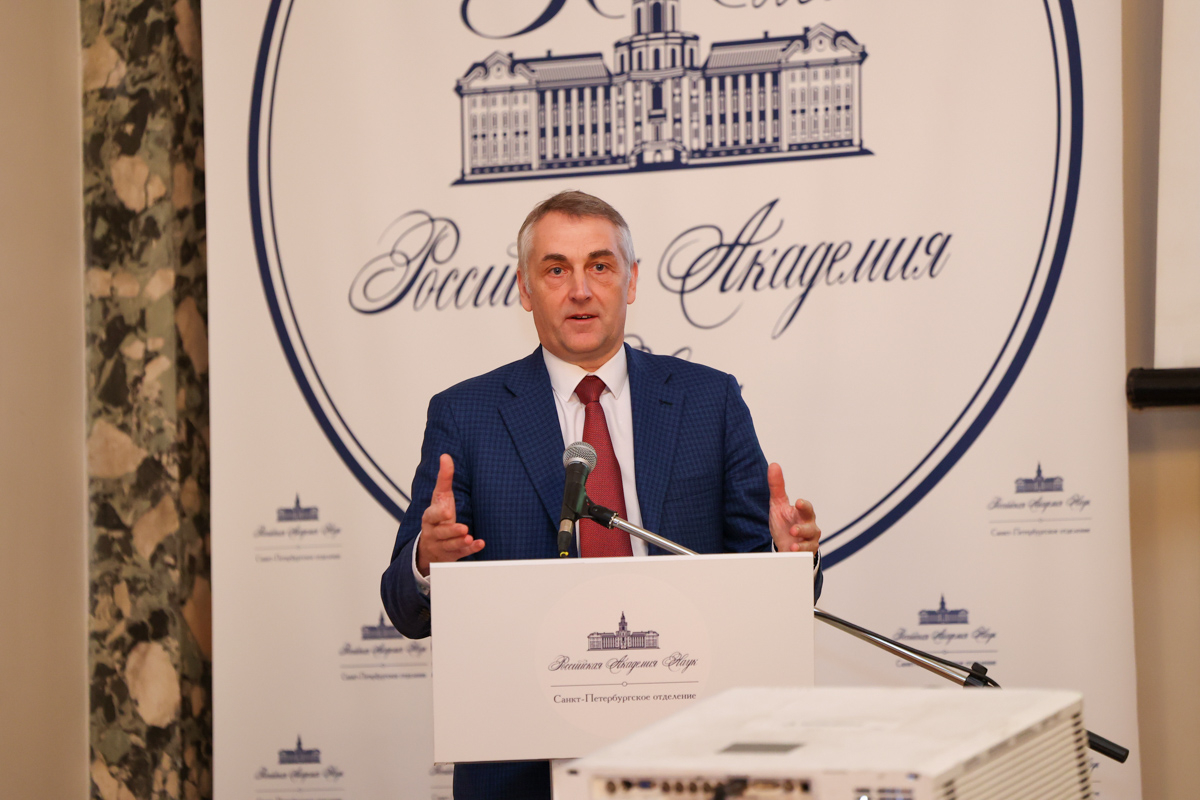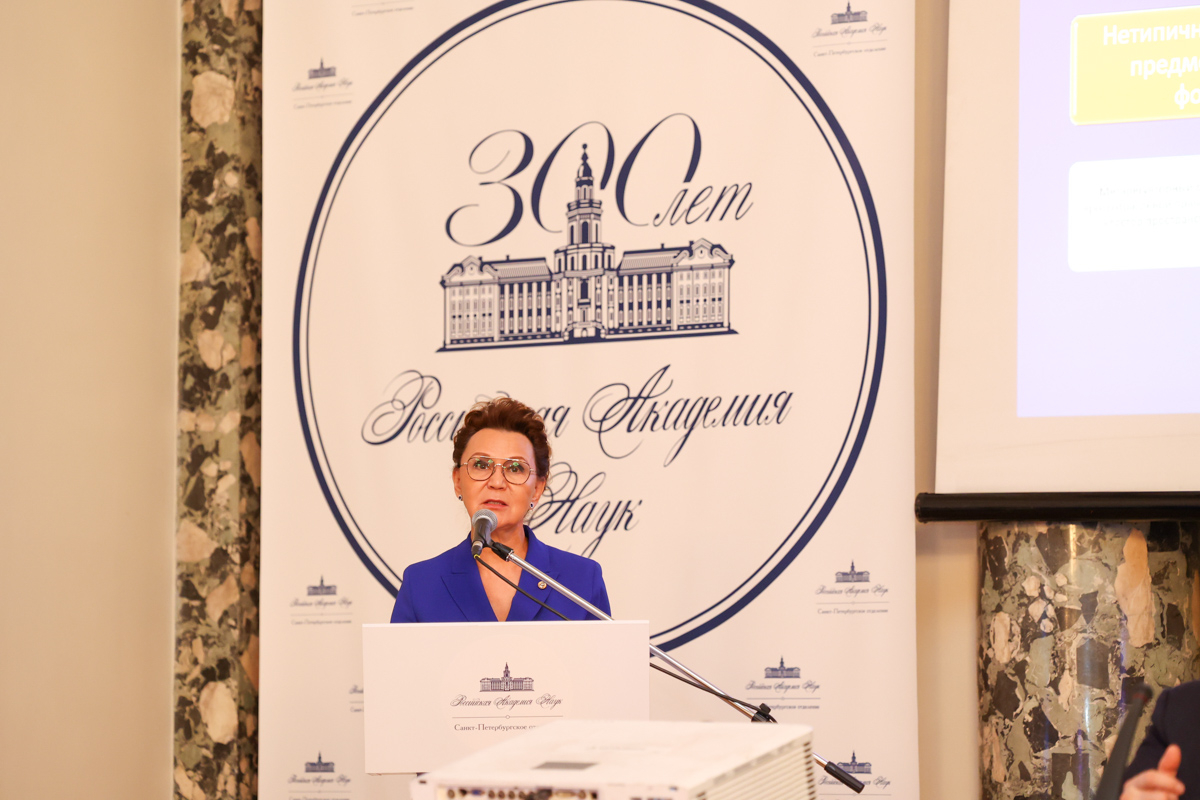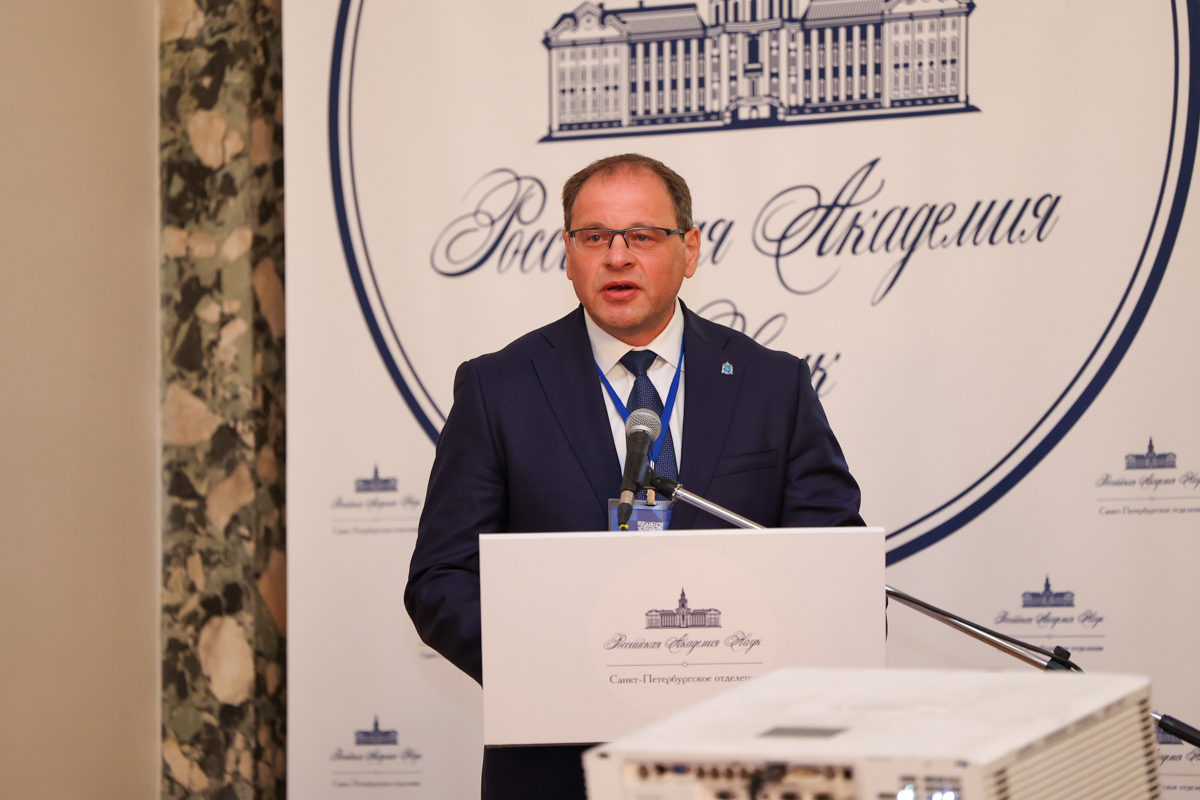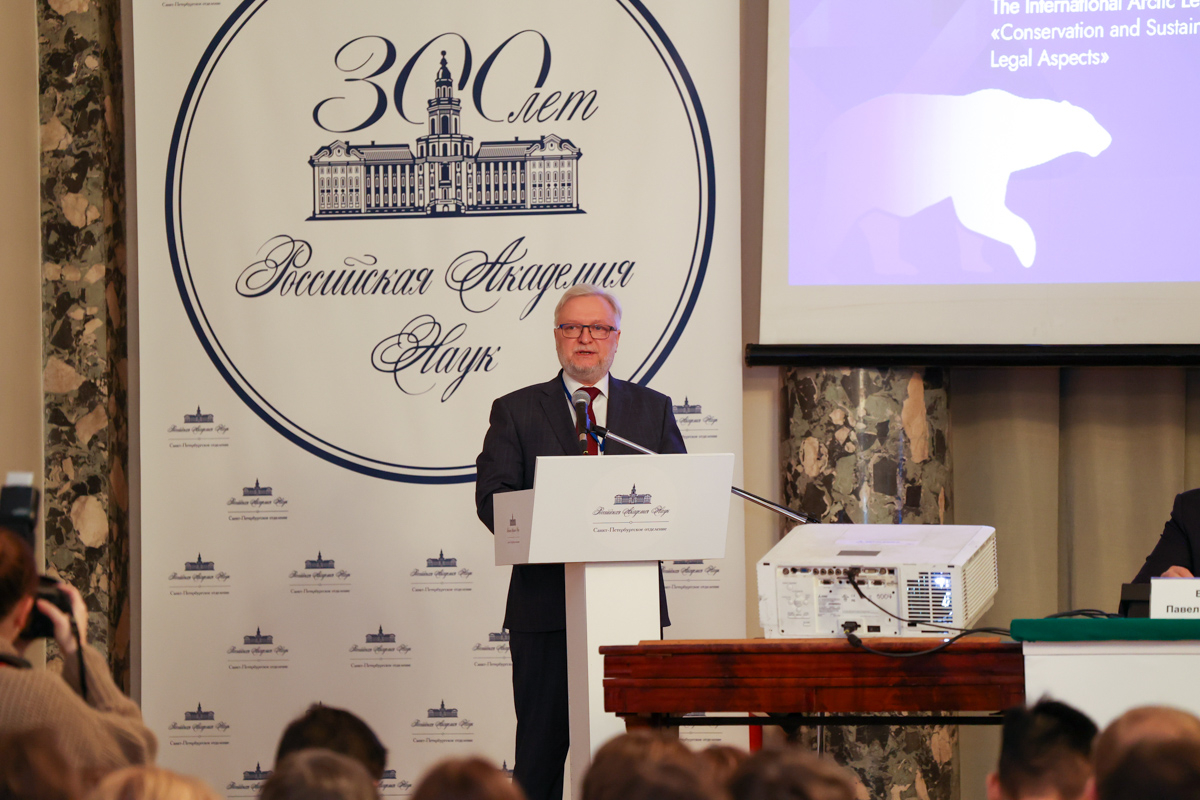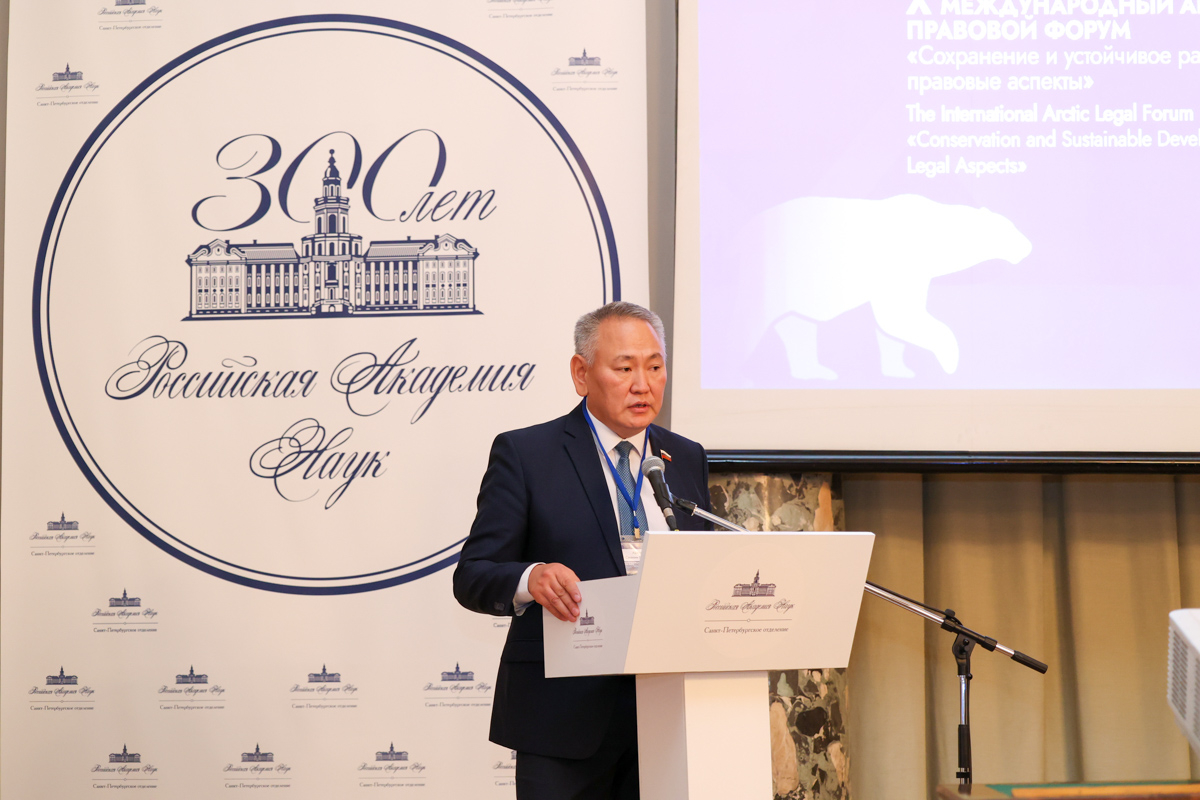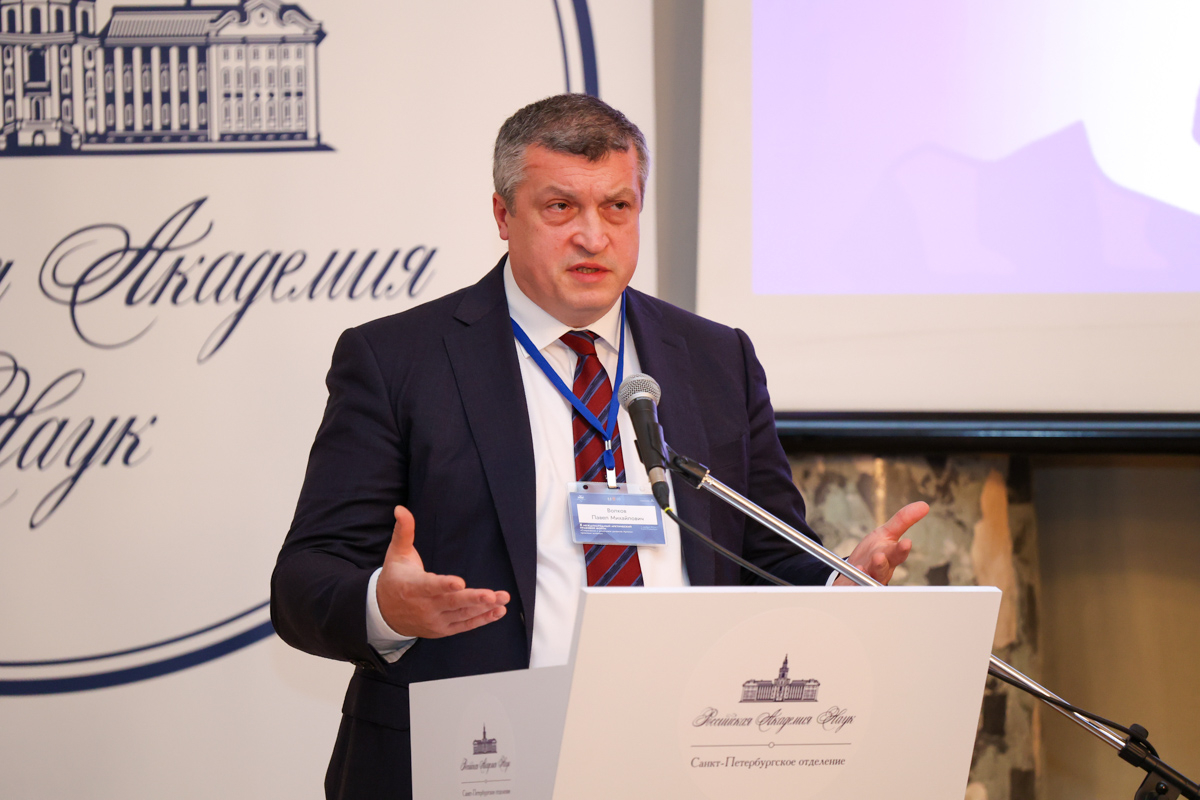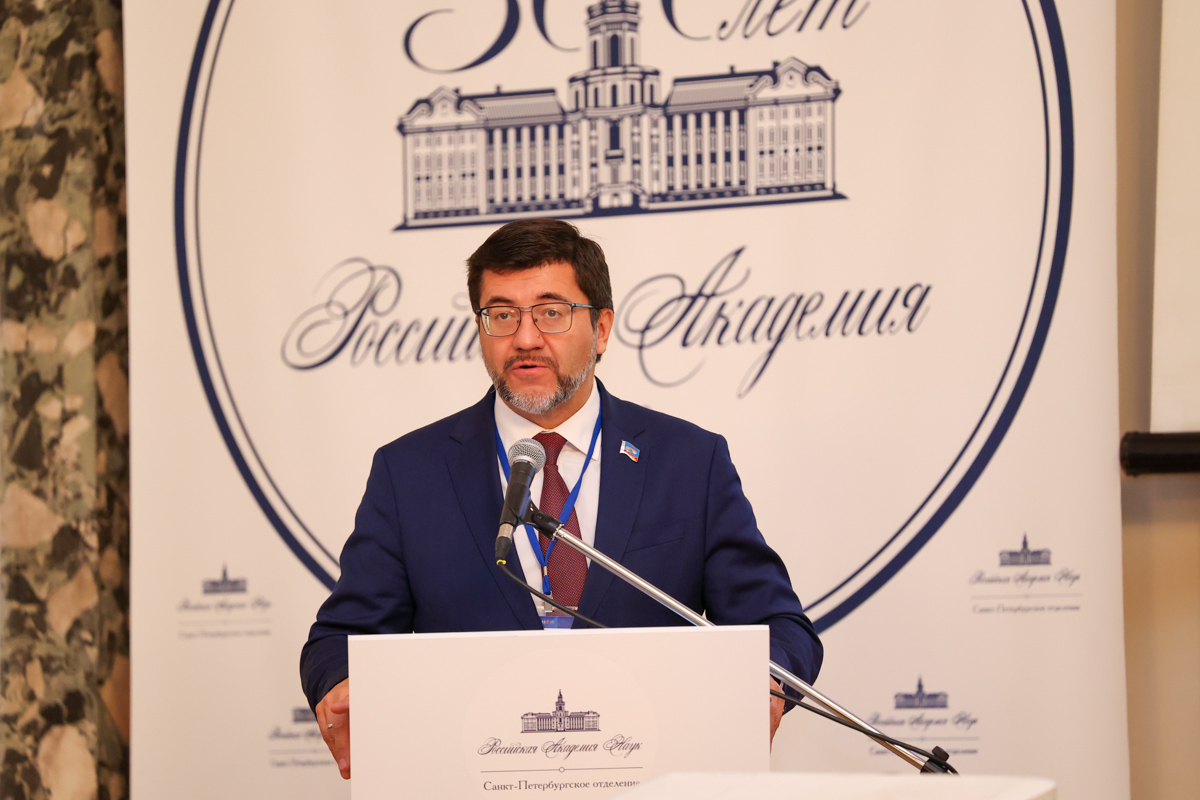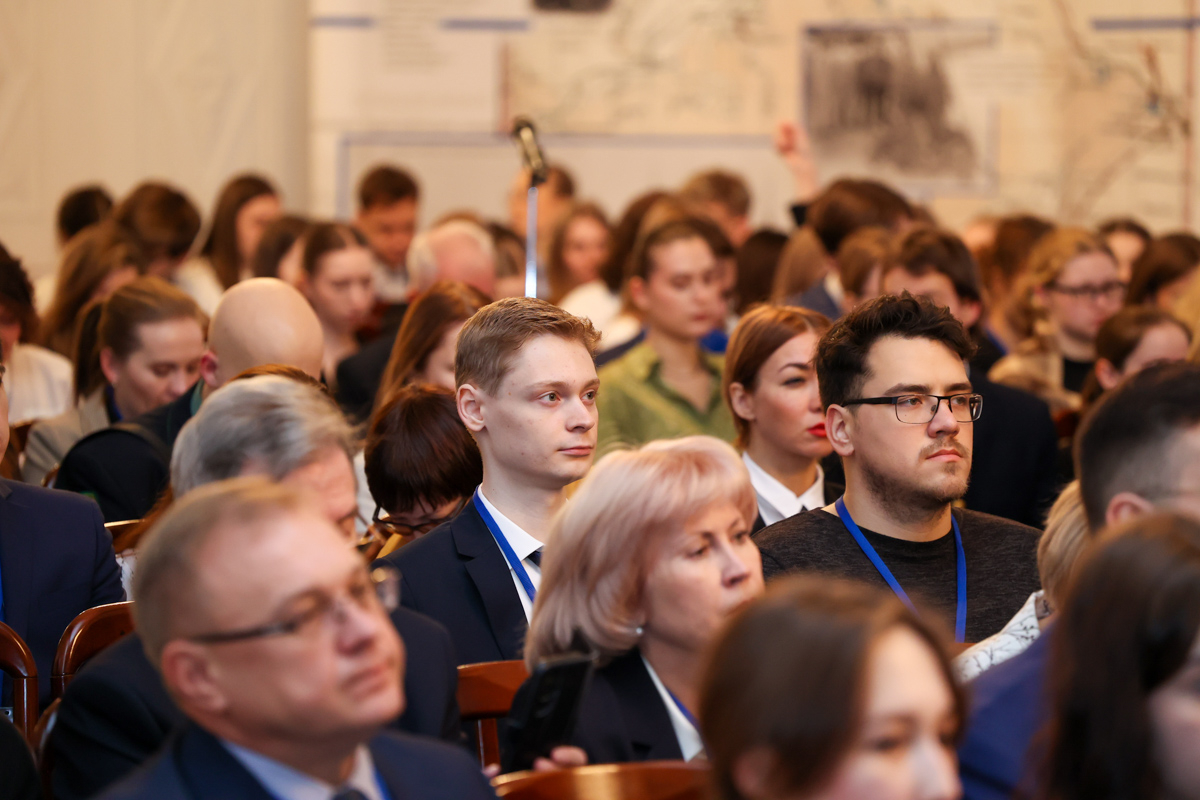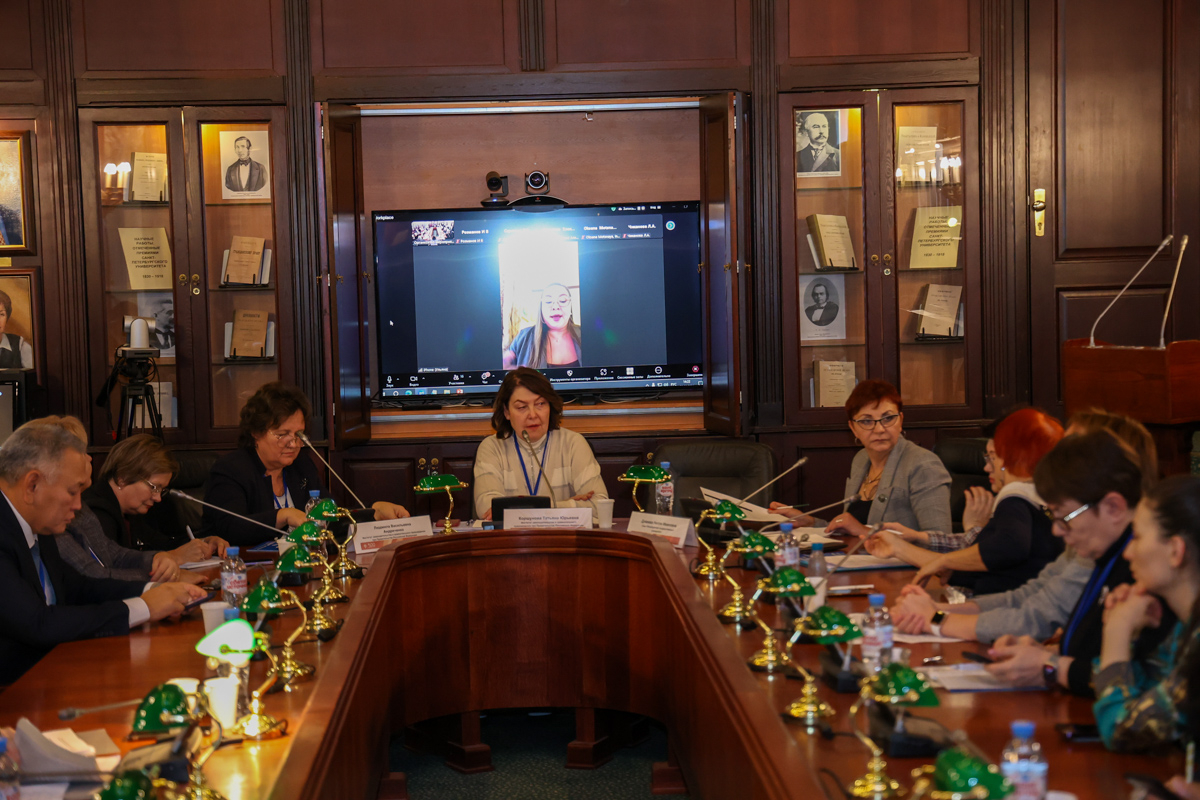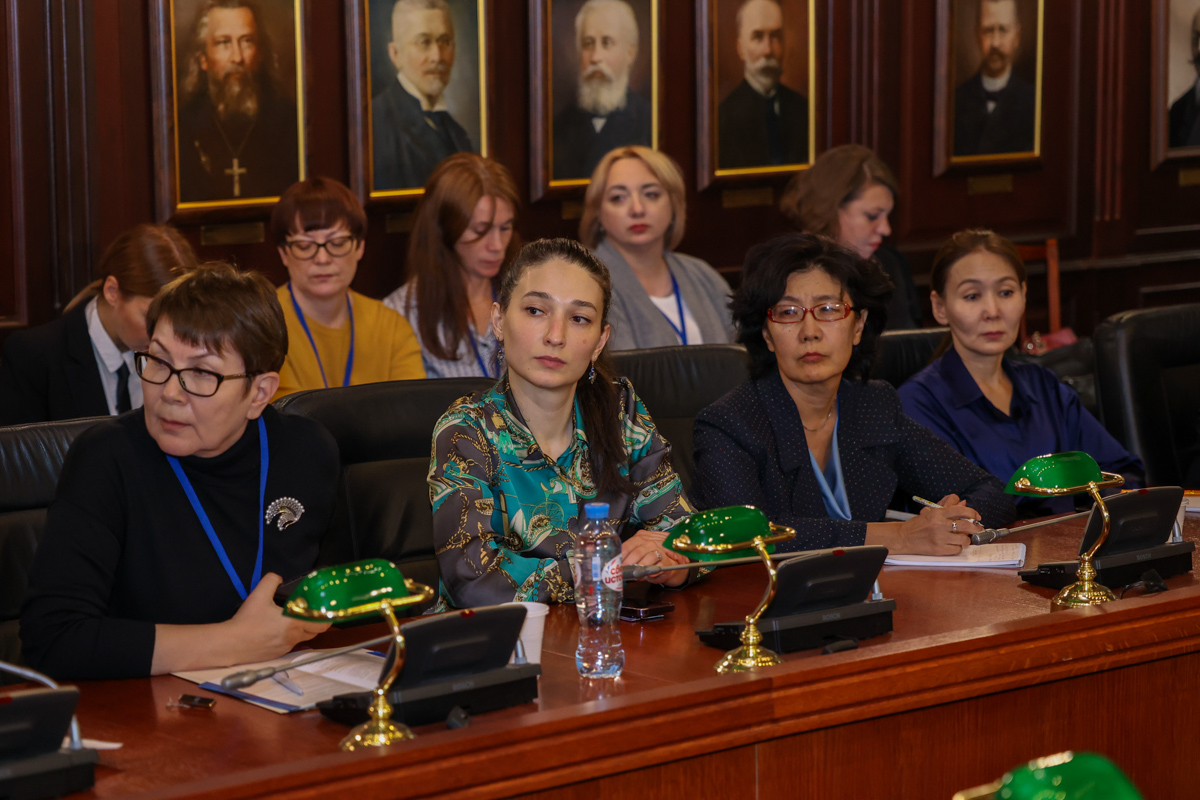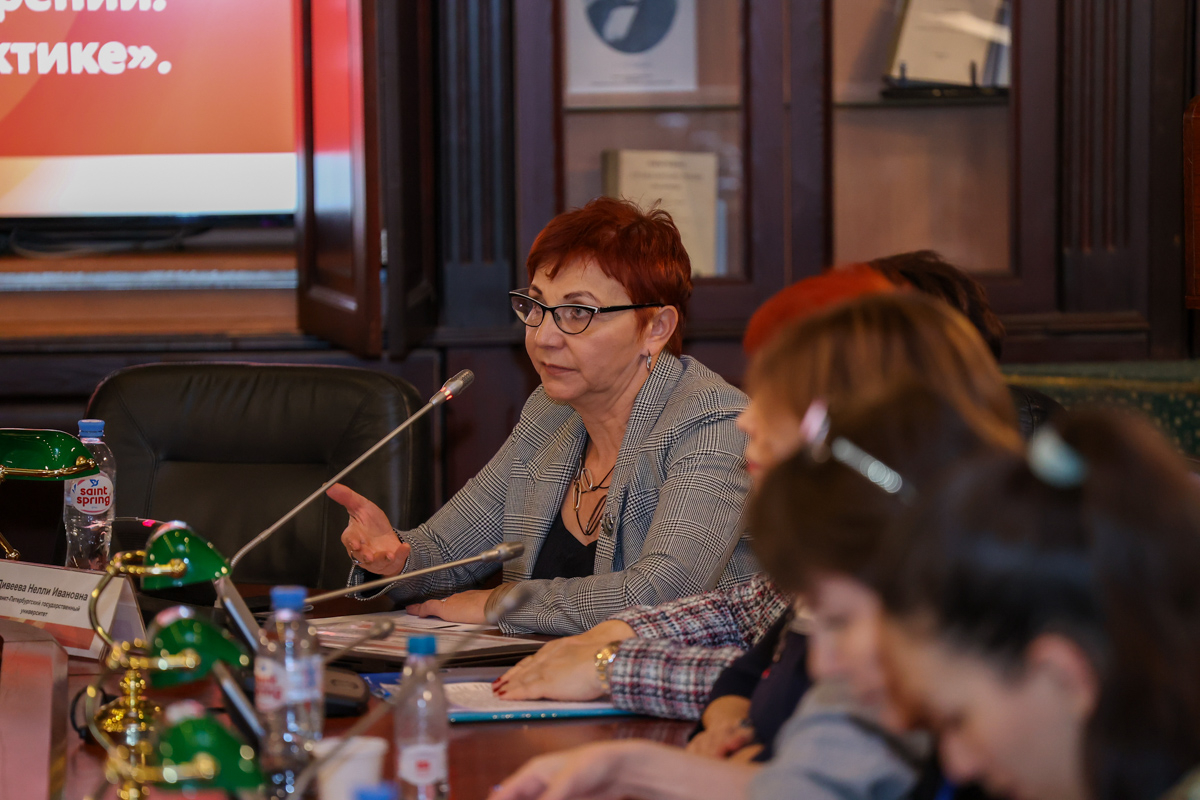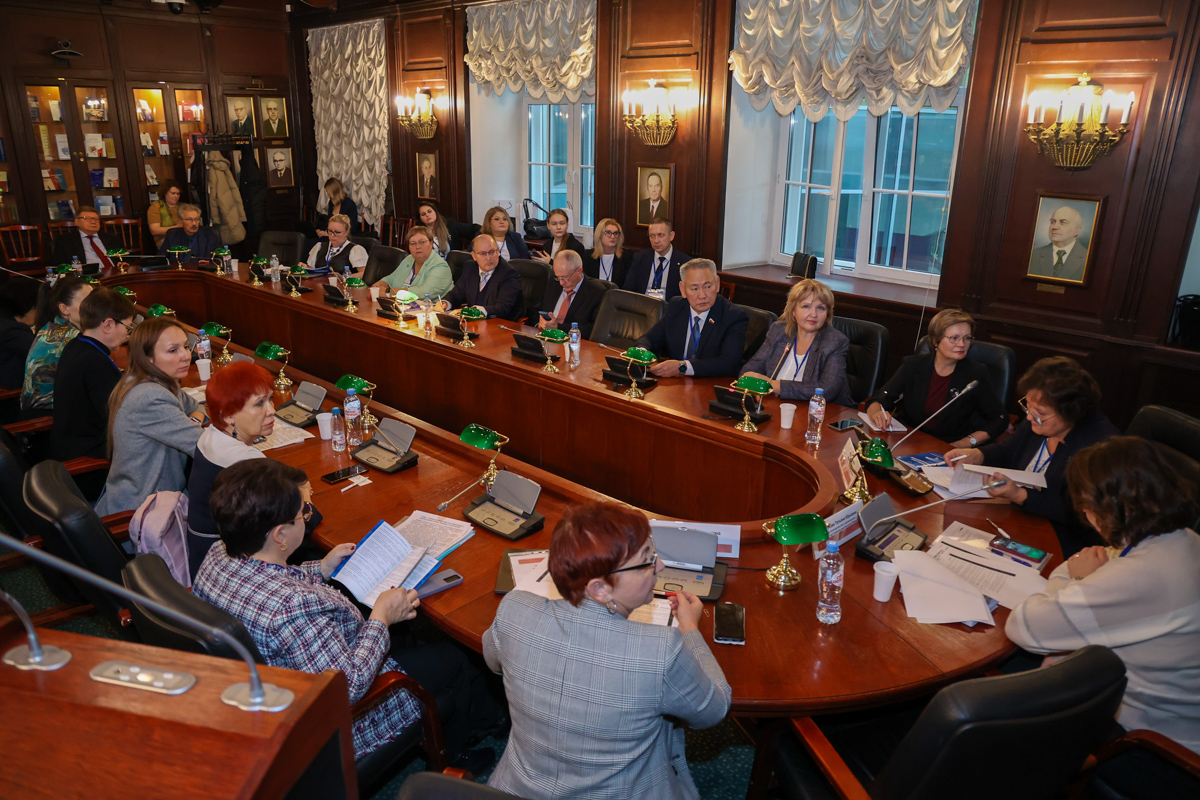St Petersburg University researchers: ethnological studies on minority peoples of the North should be taken into account in the Arctic legal regulations
Experts from St Petersburg University have participated in the 10th International Arctic Legal Forum, titled "Conservation and Sustainable Development of the Arctic: Legal Aspects."
The forum was held at the St Petersburg Branch of the Russian Academy of Sciences. Taliya Khabrieva, Director of the Institute of Legislation and Comparative Law under the Government of the Russian Federation and Deputy President of the Russian Academy of Sciences (RAS), opened the meeting. In her opening address, she emphasised the role of law in prioritising human welfare and establishing social guarantees to offset the harsh conditions of the Arctic, where individuals live, work, and contribute to the region’s development.
St Petersburg University leads Russia and ranks among the global top 10 institutions in Arctic research publications.
Russia’s Arctic zone spans 20,000 kilometres, including the Northern Sea Route. These territories require not just development, but also the establishment of conditions for a high-quality life for their inhabitants and the efficient, environmentally responsible extraction of their resources. "The Arctic is a focal point and a strategic priority for many of the world’s leading legal powers," emphasised Vitaly Sergeev, Corresponding Member of the Russian Academy of Sciences.
For many years, St Petersburg University has consistently implemented academic programmes, projects, and initiatives designed to contribute to addressing key governmental challenges. The Russian Arctic, with its geopolitical, economic, and historical significance for contemporary Russia, has remained a focal point for the University’s experts.
Marina Lavrikova, Senior Vice-Rector for Academic Activities at St Petersburg University
The Basic Principles of Russian Federation State Policy in the Arctic were endorsed by President Vladimir Putin. The key challenges facing the state include: maintaining Russia’s presence in the Arctic; integrating the Arctic territories into economic activity; safeguarding national interests against foreign interference; fostering socio-economic development in the region; and enhancing the quality of life for its inhabitants.
"Addressing such challenges requires an integrated, systemic approach that facilitates coordinated efforts across multiple interconnected areas," Marina Lavrikova underlined. "In Arctic studies, including legal research, significant advancements cannot be made without embracing interdisciplinary principles."
Over the past five years, St Petersburg University has undertaken 48 research projects in Arctic studies, yielding significant scientific findings across biology, ecology, soil science, geology, oil and gas, geography, climatology, hydrometeorology, geophysics, oceanography, political science, and energy. Between 2020 and 2024, researchers published over 650 papers on their Arctic research findings, including more than 200 publications indexed in Scopus.
One of the major areas of interdisciplinary research addressing Arctic issues, including legal aspects, is undoubtedly the issues in ecology, natural resource management, and economic activity within the Arctic zone.
One notable outcome of the comprehensive studies conducted by St Petersburg University scholars is the monograph "China’s Current Arctic Policy" by Mariia Kobzeva. This work offers an in-depth analysis of China’s contemporary Arctic policy, with a particular focus on the Arctic zone of the Russian Federation. The author draws special attention to the role of China and other non-Arctic countries in regulating economic activities within the region, including the issues in maritime and polar logistics. The monograph also explores the prospects of the China-Russia Arctic Silk Road project.
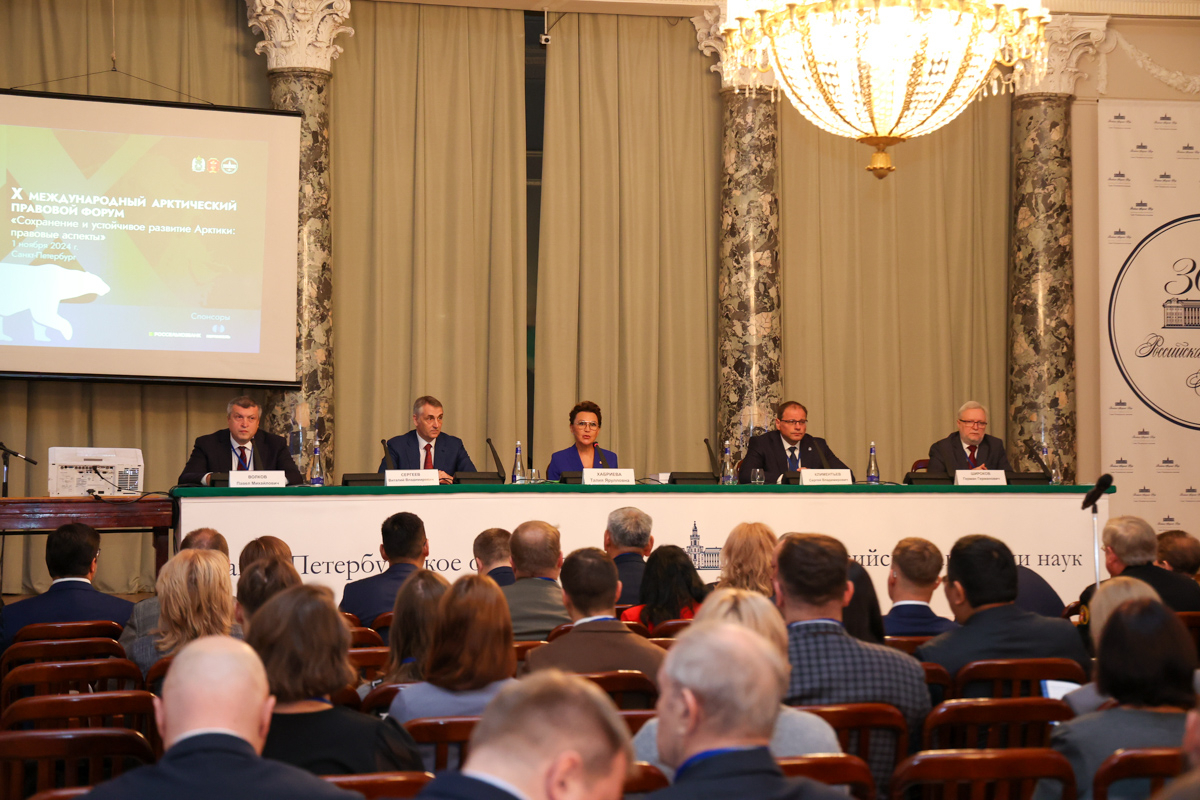
In 2024, St Petersburg University launched a three-year research project focused on the development of the Northern Sea Route within the context of the "blue economy" (the economy of the World Ocean) in the Arctic zone of the Russian Federation. Preliminary findings indicate that while economic activities by Russian organisations in the Arctic seas have been expanding in recent years, the regulatory, legal, and strategic documents lack both the term "blue economy" and a comprehensive understanding of its systemic implications.
Meanwhile, various principles and development trajectories of the "blue economy" are outlined across numerous documents, with this array of regulatory sources contributing to fragmentation and inconsistency. Scholars argue that there is a pressing need for a comprehensive definition of the fundamental principles of Russia’s "blue economy" at both legislative and strategic-conceptual levels.
Another relevant topic discussed by the forum participants was the preservation of the ancestral environment and traditional lifestyles of the indigenous minorities inhabiting the Arctic zone.
In 2024, at the request of the Deputy Chairman of the Magadan Regional Government, experts from St Petersburg University developed proposals to address the task of creating an ethnological and legal framework for potential inclusion of representatives of the northern Chukchi people, who practice traditional crafts and reside in the Magadan Region, in the unified list of indigenous minority peoples of the Russian Federation within the Magadan Region. Additionally, they formulated proposals to enhance existing federal regulations concerning the granting of indigenous minority status within relevant territories.
The legal assessment of the situation of indigenous minorities in the North is presented in the article "Legal Policy in the Field of Ethnology" by St Petersburg University experts Marina Yudina and Aleksandr Alekseenko. The authors argue that ethnological research findings should form the foundation for developing by-laws aimed at protecting the rights of these peoples, supporting them, and fostering their cultural autonomy.
The scholars proposed developing a conceptual framework that would establish the role of ethnology in the lawmaking process and allow the use of materials collected in the course of ethnological research on vulnerable and endangered peoples of Russia. This approach would facilitate creating specialised protection mechanisms and introducing new measures to support minority peoples, including the indigenous peoples of the North.
One of the round tables at the 10th Arctic Legal Forum was hosted by St Petersburg University. The discussion was attended by experts from the Department of Labour Law and Labour Protection at St Petersburg University: Professor Nelli Diveeva; Assistant Professor Nikolai Startsev; and Associate Professor Denis Novikov, along with the University’s students and academics.
The forum participants discussed strategies to attract and retain young qualified professionals in the Far North, including suitable guarantees and compensations to employees working in harsh conditions, and ensuring a balance between private and public interests when delivering social security guarantees and benefits to citizens.
The workforce in the Arctic remains scarce, particularly in essential social sectors such as healthcare and education. In some regions, unemployment rates exceed the national average, exacerbated by the outflow of highly skilled specialists to more developed regions of Russia. Although average salaries are rather competitive, many workers still face financial struggles, with an increasing number of people living below the subsistence minimum level. To address these challenges, experts have proposed introducing a basic income as a potential measure to support Arctic workers and their families.
"A basic income could help meet the basic needs of the population, which is particularly crucial given the high costs of housing and utilities in Arctic regions," said Denis Novikov, Associate Professor in the Department of Labour Law and Labour Protection at St Petersburg University. "Additionally, it could stimulate the local economy and reduce population outflow," he explained.


